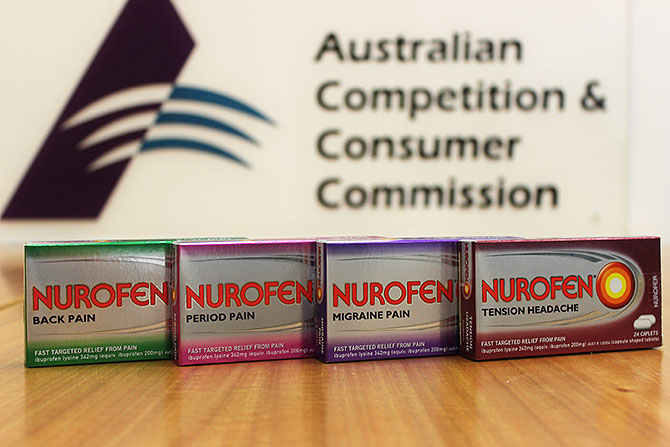
Reckitt Benckiser has been ordered to pay up to $6 million after losing a High Court appeal.
The Federal Court handed down a $1.7 million fine early in 2016, however it was increased on appeal by the Australian Competition and Consumer Commission (ACCC).
In that appeal, ACCC chairman Rod Sims said it was “disappointing a fine of $1.7 million was imposed for a company this size”.
“It is not really going to catch people’s attention and send the deterrence message we need,” he said.
The new $6 million fine has been highlighted as the highest corporate penalty awarded for misleading conduct under the Australian Consumer Law.
The issue was first highlighted by the Therapeutic Goods Administration (TGA) in 2013 when Reckitt Benckiser was brought before the TGA over claims in an ad they had run in reference to targeted pain relief range.
At the time Reckitt Benckiser said that they took consumers’ health and safety seriously and were committed to developing high quality and effective products.
The original case brought against Reckitt Benckiser stated that the ‘Specific Pain’ ibuprofen painkiller range was misleading to consumers.
The range, which claimed to target specific pain in various areas of the body, contained the same active ingredient of the anti-inflammatory ibuprofen drug, rendering each pill exactly the same no matter its claim of any specifically targeting attributes.
The pain specific range of Nurofen products were set at a significantly higher price point than the regular Nurofen range.
Various representations on the Nurofen website were also found to be misleading to consumers and Reckitt Benckiser was ordered to publish website and newspaper corrective notices.
Having accepted the initial $1.7 million fine as appropriate, Reckitt Benckiser admitted that it had engaged in the contravening conduct and consented to the orders made by the court.
Rod Sims went on to say that the ACCC took the case further because it was concerned that customers had purchased the products due to their representations on the packaging.
“Truth in advertising and consumer issues in the health and medical sectors are priority areas for the ACCC, to ensure that consumers are given accurate information when making their purchasing decisions,” Mr Sims said.
“Any representations which are difficult for a consumer to test will face greater scrutiny from the ACCC”
The court also ordered Reckitt Benckiser to remove the products from shelves within three months.
Between 2011 and 2015, it was reported that the company sold 5.9 million packets of the medication, raking in $45 million in revenue.
The $6 million fine, once paid will consolidate into revenue for the government.

